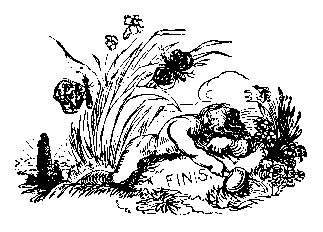Erik Davis conducted with Terence McKenna in 1999,
in preparation for a profile in Wired.
The interview was done in San Francisco
just a few days before Terence underwent a craniotomy,
and he therefore spoke a bit more frankly
about his condition than during November,
when I spent a week with him during his brief remission in Hawaii.

Nothing lasts. That's one thing I think you learn from life, psychedelics, or just paying attention. Very little lasts.
These Buddhists aren't kidding: you are here for a very brief moment, and you can sit on your thumb and do whatever you want, but in fact the clock is ticking. What are you gonna do about it? Are you gonna blow it off, or be a hedonist? What are you gonna do with that? If most people took it seriously, a hell of a lot more would be done with more attention to quality and intent. And they're always talking about this stuff --- intent.
I have to say I do feel lucky, even at this late stage of the game, I feel lucky to have lived the life I lived, and even though I have this horrific thing I feel lucky in terms of dealing with it. I don't feel like it's a death sentence...
Until I'm able to run upstairs I think I just have to yield to fate. It's not clear entirely what's happening with me. If I'm getting well, that's pretty easily managed. If I'm in fact slowly slipping away, you just want to do it right and set a good example and not be a pain to your relatives, friends, and fans. And that seems pretty easy to me. It all gets very private once they tell you you're about to kick.
I find to my surprise about myself, that I'm not really afraid of death. I'm pretty concerned about dying. I don't want dying to turn into some kind of wet, sticky, thrashing kind of thing. Death, hell, what are you buying? You have no idea, so why even give it a moment's thought?
Death is the black hole of biology. It's an event horizon, and once you go over that event horizon, no information can be passed back out of the hole. So people can stand around the edge of the hole and say, Well it was this or that, but in fact, it represents some kind of limit case in the thermodynamics of information. You just can't hand messages back over that threshold. So get yourself pointed right, do not let your mantras bungle, and that's about it. When you're actually dead, all bets are off. The best answer I've gotten yet out of this is from Don Delillo's Underworld, where the nun discovers that when you die you become your website.
Taking plants and spending your life in esoteric philosophy and taking drugs is basically on a meditation on death. Buddhism is some form of learning how to die. And that seems worth doing. And unavoidable. If you're a serious person, how could you not confront this kind of stuff?.
The real dilemma for human beings is how to build a compassionate human civilization. The means to do it come into our ken at the same rate as all these tools which betray it. And if we betray our humanness in the pursuit of civilization, then the dialogue has become mad.
So it is a kind of individual challenge for every single person to demand that compassionate civilization. It calls for a uniquely human response from each person. And the way to be motivated to do that is to take on the fact of human mortality, your own and other people's.
When I think about dying, the thing that surprises me is how much of the future I regard as history, and how I don't want to miss it. I want to know how it all comes out. I haven't a lot of money riding on my vision of things, but I would like to know how the universe came to be, what's up with extraterrestrials, where biotech is going, where the Internet is going, about robot/man space-flight to the outer planets. Because the next century will be it. We are on the brink of a posthuman existence, or we are into the early phase of the posthuman existence. So what's it gonna look like? What's it gonna feel like? Hipparchus, in the second century BC, was asked what he feared most about death, and he said, Not being able to follow the latest discoveries in astronomy. Well, that's precisely my position.
figment@sirius.com
His homepages are at:
http://www.levity.com/techgnosis
http://www.levity.com/figment